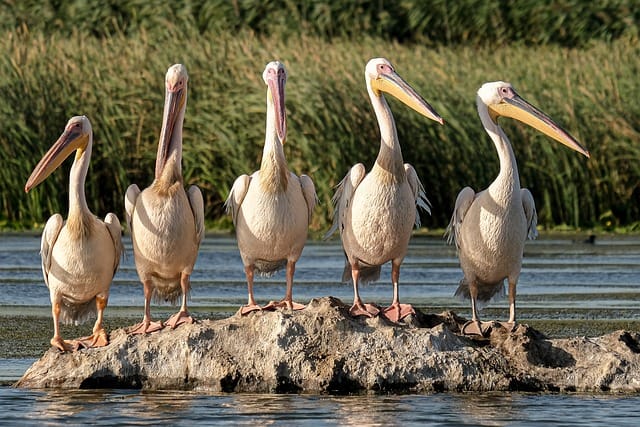Exotic pets like parrots, reptiles, and small mammals often come from unique ecosystems that are increasingly under threat. Conservation programs play a critical role in preserving these habitats and ensuring that species thrive both in the wild and in responsible pet ownership settings. Here’s a closer look at some of the top global efforts to protect exotic species and their natural environments.
1. World Wildlife Fund (WWF)
The WWF works tirelessly to protect endangered species and their habitats. Their programs include:
- Efforts in the Amazon: Protecting biodiversity hotspots where exotic species like macaws and dart frogs originate.
- Combatting Wildlife Trafficking: Working with governments to curb illegal pet trade and create sustainable practices.
How You Can Help: Donate, volunteer, or support their “Adopt a Species” initiative.
2. Conservation programs International
Focusing on preserving biodiversity, Conservation International safeguards areas critical to exotic species survival.
- Tropical Rainforest Projects: Ensuring ecosystems vital for reptiles, amphibians, and tropical birds remain intact.
- Community Empowerment: Involving local communities in conservation efforts to ensure sustainable use of natural resources.
Key Impact: Over 1.2 million square miles of critical habitats protected globally.
3. EDGE of Existence (ZSL)
The EDGE of Existence program by the Zoological Society of London prioritizes species that are evolutionarily distinct and globally endangered.
- Featured Species: Axolotls, pangolins, and the Chinese giant salamander.
- Approach: Supporting field research and developing conservation programs in partnership with local organizations.
Why It Matters: Many species on their list are also popular in exotic pet communities.
4. TRAFFIC
As a leading wildlife trade monitoring network, TRAFFIC tackles the illegal trade of exotic animals and plants.
- Focus Areas: Ensuring that the trade in exotic pets is legal, ethical, and sustainable.
- Success Stories: Collaborating with law enforcement to dismantle trafficking networks.
What You Can Do: Support their campaigns or educate others about the importance of legal exotic pet trade.
5. Rainforest Trust
Dedicated to purchasing and protecting threatened rainforests, the Rainforest Trust helps preserve habitats for countless exotic species.
- Major Achievements: Protecting over 39 million acres of rainforests worldwide.
- Species Impact: Safeguarding habitats for species like poison dart frogs, toucans, and jaguars.
How You Can Contribute: Donations go directly toward land acquisition and conservation efforts.
6. International Union for Conservation programs of Nature (IUCN)
The IUCN’s Red List is the gold standard for identifying species at risk of extinction.
- Role in Conservation: Providing data that informs conservation policies and priorities.
- Focus on Exotic Species: Highlighting species threatened by habitat loss and over-collection for the pet trade.
Explore Their Resources: Learn more about your exotic pet’s conservation status.
7. The Wildlife Conservation programs Society (WCS)
WCS is a leading organization in global conservation, particularly in the tropics where many exotic species live.
- Field Projects: Protecting ecosystems like the Congo Basin and Southeast Asian rainforests.
- Species Spotlight: Efforts to save exotic birds, primates, and reptiles at risk of extinction.
Get Involved: Support their campaigns or visit their education centers in the USA.
Why These Programs Matter for Exotic Pet Owners
Owning an exotic pet comes with a responsibility to understand its origins and support efforts to protect its natural habitat. By aligning with conservation programs, pet owners can:
- Reduce the demand for illegal wildlife trade.
- Encourage ethical breeding practices.
- Contribute to preserving the ecosystems that exotic species call home.
How You Can Help
- Choose Responsibly: Ensure your exotic pet comes from a legal and ethical source.
- Support Conservation Programs: Donate or volunteer with organizations working to protect habitats and species.
- Raise Awareness: Use your platform to educate others about the importance of conservation.
Conclusion
The world’s exotic species depend on collective efforts to ensure their survival in the wild. As exotic pet enthusiasts, supporting these conservation programs is not just an option—it’s a responsibility. Together, we can preserve the beauty and diversity of the natural world for generations to come.
Explore more about exotic pet care and conservation at Exotic Pet Haven.
To learn more about the incredible work being done to protect exotic species around the globe, check out this insightful article from the International Fund for Animal Welfare: Conservation Projects Saving Endangered Wildlife. Sources and related content

